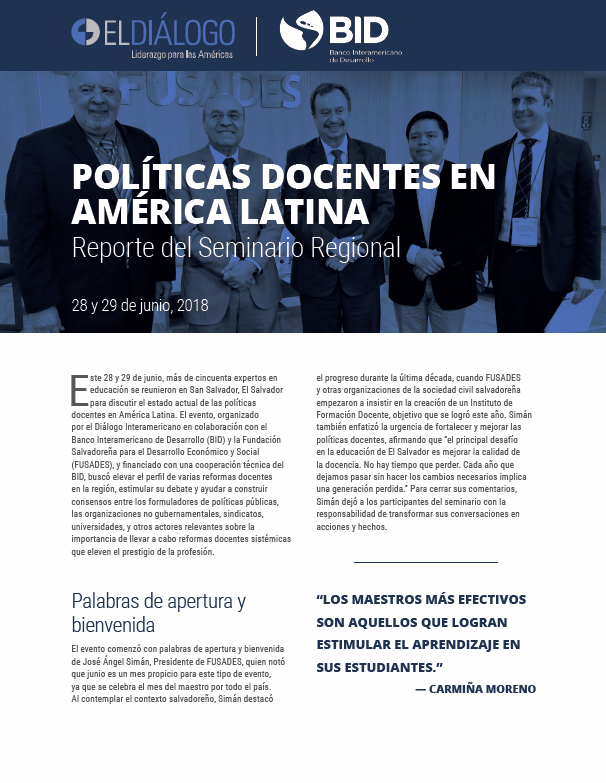Protecting Latin America’s Poor During Economic Crises
History tells us that economic crises cause large increases in poverty. The most recent economic crisis will cause Latin America’s GDP to contract around 2 percent in 2009.
This post is also available in: Español
On June 28th and 29th, 2018, more than fifty education experts met in San Salvador, El Salvador to discuss the current state of education policies in Latin America. The event, organized by the Inter-American Dialogue in collaboration with the Inter-American Development Bank (IDB) and the Salvadoran Foundation for Social and Economic Development (FUSADES in Spanish), and financed with a technical cooperation from the IDB, sought to raise the profile of various teacher policy reforms in the region, stimulate debate and help to build consensus between policymakers, NGOs, organized labor, universities and other relevant actors about the importance of carrying out systematic teacher policy reformas that raise the prestige of the profession.
Over the course of the two-day event, researchers from eight different countries presented new or updated research on the state of teacher policy reform in their respective countries, and members of government and civil society had the opportunity to discuss shared challenges and successes. To read the complete report, click here.

History tells us that economic crises cause large increases in poverty. The most recent economic crisis will cause Latin America’s GDP to contract around 2 percent in 2009.
The goal of education is to promote learning. Sitting in classrooms is a weak proxy for knowing how to read, do math, and apply science. Latin America needs to worry less about schooling and more about learning.
The mobilization of 70,000 students in the streets of Chile is more than just a protest for free higher education.
